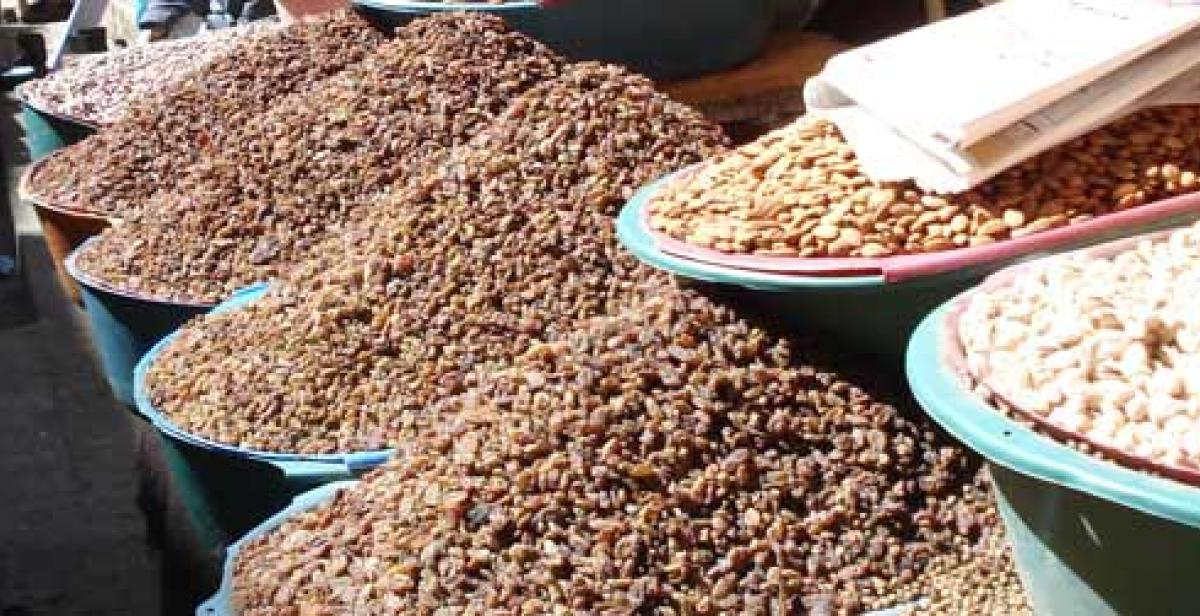“In 40 years time the earth will no longer be able to sustain its projected population.” (Tim Aldred, Progressio Policy and Communications Manager)
Tim’s article ‘If the world is to be fed’, which was recently published in The Tablet, explores the issues highlighted in the government’s recent Foresight report, “The Future of Food and Farming: Challenges and choices for global sustainability”. The report forecasts the next 40 years, predicting that the world’s population will level out at 9 billion, a vast population facing “an increasingly erratic climate and pressure on natural resources making it harder to grow crops”.
In his article Tim calls for action: “our continued failure to prevent hunger for over a billion people worldwide is one of our most fundamental moral challenges. Action is needed now if we are to be ready.”
The world’s consumption of natural resources is unsustainable; and over one billion poor and marginalised people are being failed, left to suffer at the hands of hunger and malnutrition.
But what can we do?
Tim explains that “collectively we must curb our appetite for meat, especially for animals fed on grain, and protect fragile fish stocks. We also have to stop over-exploiting natural resources such as groundwater.” However this is not a simple task and has many implications.
An example of some of the challenges we face is explored in Progressio’s recent report, "Drop by drop", a study that focuses on the growth of asparagus in the semi desert Ica region of Peru.
The study found that continuing to grow asparagus at the same rate to meet the demand of countries like the UK would mean that in a matter of decades a third of a million people would be without access to water. This terrifying reality needs to be addressed; however, putting a stop to the trading of asparagus with Peru would mean that thousands of people who rely on asparagus farming for their livelihoods would be left unemployed, with no means to support their families.
The challenge of climate change
Climate change is also another huge challenge facing the world, making food harder to grow as weather is becoming increasingly sporadic and hard to predict. A Peruvian alpaca farmer Humberto Lizana told Progressio: “Climate change is bringing us freezing days and a high incidence of sun. And these big temperature changes do not allow agriculture on a small scale to flourish.”
He continued: “The people who suffer most are those with a precarious personal economy, like the alpaca farmers or the cereal or potato farmers.”
It's the world's poor who are left to suffer
In his article Tim highlights how the world’s poor are always the ones left to suffer. He says: “When the poor suffer, big business often benefits – a key concern for many campaigners.
“During my years working on relief programmes I often saw grain available – at a price – in the same towns in which people were down to one meal a day. Traders earning a good living out of the high prices were forcing children into emergency nutrition centres.”
The Foresight report argues that reducing the volatility in food markets, and improving the governance of the system is essential. But time is running out! If we are to support the world’s poor we need to make changes in our own lives. We also need to ensure that more is done, that more is invested in small-scale farming, and that poor people have the skills and knowledge to react to climate change by using sustainable farming methods.
You can read Tim’s article in full by clicking here: ‘If the world is to be fed’. To read Progressio’s report on water in Peru in full, please click here: Drop by drop (3.29MB PDF). Or you can read a summary of the report's main findings here.
Photo: beans and seeds being sold at a local market in Yemen (photo © Joanne Green/Progressio)




Comments
<!--StartFragment--> Progress
Progressio’s best work is to try to increase local bottom-up power in the South so people have more control over the land they live on. You’re also trying to get us to cut our appetite for resource-guzzling delicacies... campaigning for mandatory food labelling could help. But governance? Controlling international market volatity? What possible argument could you use to get a radical Conservative government to put the brakes on the international free market? Almost everything they are doing is to release trade from any irritating moral restriction.
Clare Jeffery
Progressio contributor